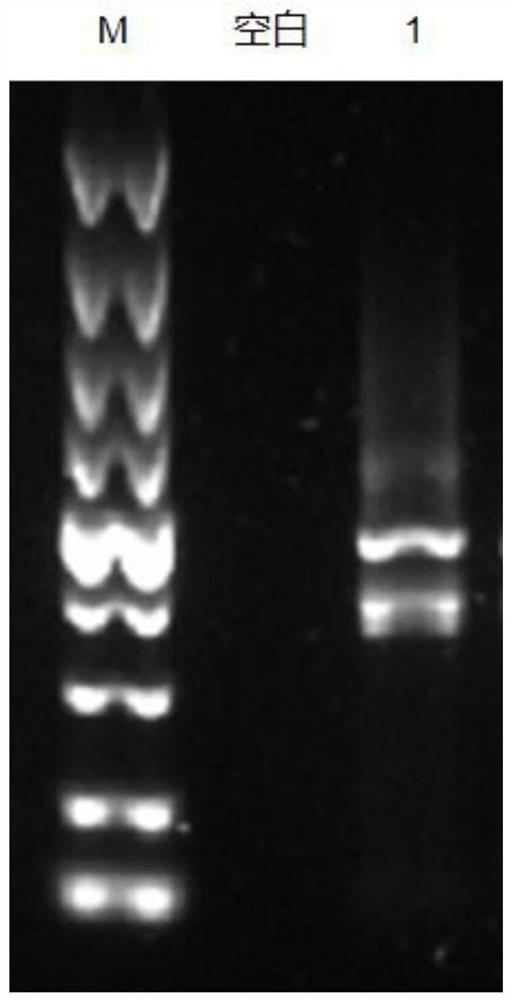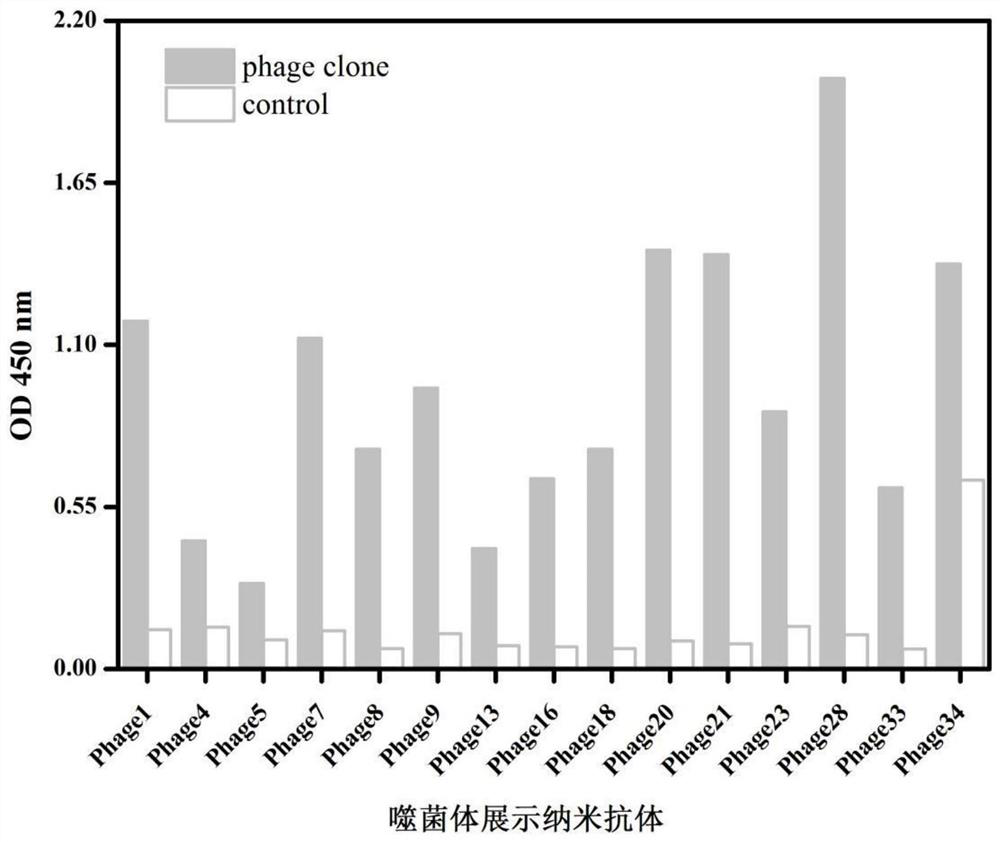Nanobody, recombinant vector, host cell and application thereof for specific recognition of Vibrio parahaemolyticus
A hemolytic vibrio and nanobody technology, which is applied in the field of microbial detection to achieve the effects of accurate detection results, high thermal stability and wide application
- Summary
- Abstract
- Description
- Claims
- Application Information
AI Technical Summary
Problems solved by technology
Method used
Image
Examples
Embodiment
[0031] 1. Construction of anti-Vibrio parahaemolyticus phage-displayed nanobody library
[0032] 1.1 Immunity of camels:
[0033] A healthy camel that has not been immunized with any antigen was selected and an equal volume of an emulsified mixture of inactivated Vibrio parahaemolyticus and Freund's complete adjuvant was prepared at a concentration of 10 8 Bactrian camels were initially immunized at the concentration of CFU / mL, and the antigens were emulsified with incomplete Freund's adjuvant for subsequent immunization. One week after each immunization, camel blood was collected to detect antibody titers in serum.
[0034] 1.2 Extraction of total RNA from blood: After the fifth immunization, the peripheral blood of camel was taken, and total RNA was extracted according to the operation steps of the RNA extraction kit.
[0035] 1.3 Reverse transcription to obtain cDNA:
[0036] To obtain the total RNA as a template, oligo(dT) 15 Perform reverse transcription for primers, ...
PUM
 Login to View More
Login to View More Abstract
Description
Claims
Application Information
 Login to View More
Login to View More - R&D
- Intellectual Property
- Life Sciences
- Materials
- Tech Scout
- Unparalleled Data Quality
- Higher Quality Content
- 60% Fewer Hallucinations
Browse by: Latest US Patents, China's latest patents, Technical Efficacy Thesaurus, Application Domain, Technology Topic, Popular Technical Reports.
© 2025 PatSnap. All rights reserved.Legal|Privacy policy|Modern Slavery Act Transparency Statement|Sitemap|About US| Contact US: help@patsnap.com



